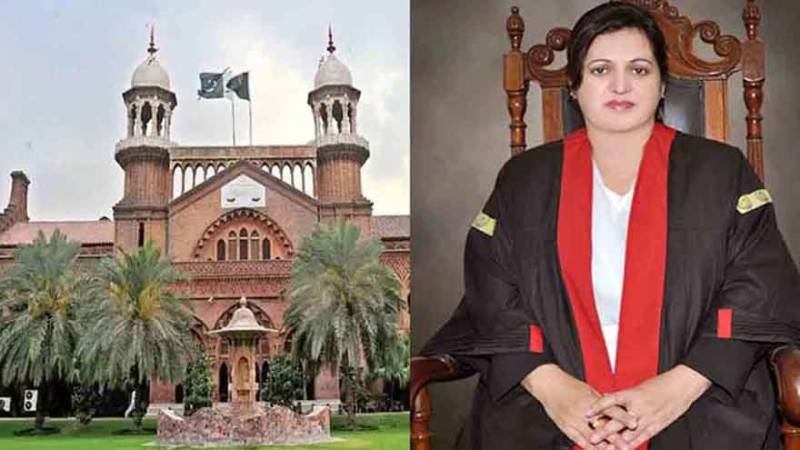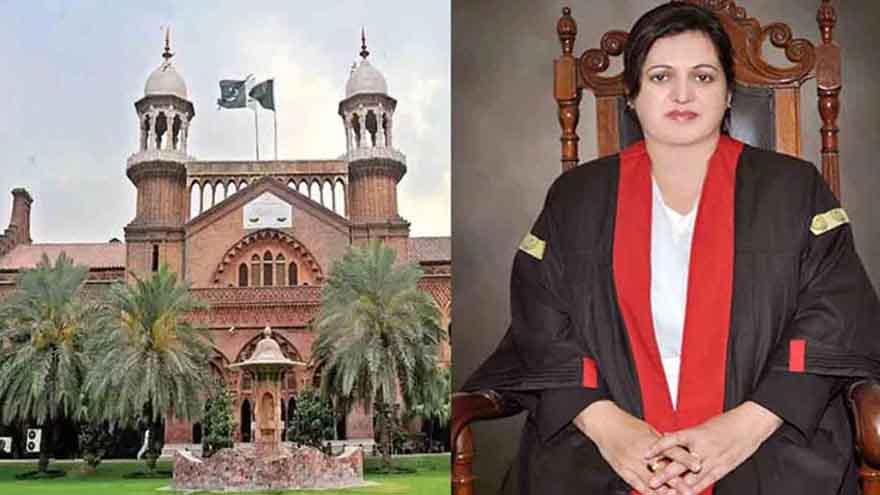- Imran Khan underwent ‘20-minute medical procedure’ at Islamabad’s Pims, confirms info minister Dawn
- Imran Khan’s health in ‘grave danger’ after eye blockage diagnosis, party says The Guardian
- Info minister confirms Imran Khan…
Category: 1. Pakistan
-
Imran Khan underwent ‘20-minute medical procedure’ at Islamabad’s Pims, confirms info minister – Dawn
-
Imran Khan underwent ‘20-minute medical procedure’ at Islamabad’s Pims, confirms info minister – Dawn
- Imran Khan underwent ‘20-minute medical procedure’ at Islamabad’s Pims, confirms info minister Dawn
- Imran Khan’s health in ‘grave danger’ after eye blockage diagnosis, party says The Guardian
- Imran Khan ‘could go blind’ if denied…
Continue Reading
-

Court extends interim bail of Aroob Jatoi in illegal gambling promotion case
LAHORE (Muhammad Ashfaq) – A Lahore sessions court on Thursday extended the interim bail of Aroob Jatoi, wife of YouTuber Ducky Bhai, in a case related to the illegal promotion of gambling applications.
The hearing…
Continue Reading
-

LHC gives police till Feb 9 to recover missing Sahiwal girl
The Lahore High Court (LHC) on Wednesday granted police time until February 9 to recover a girl reported missing from Sahiwal while hearing a petition seeking her recovery.
Chief Justice of the Lahore High Court, Justice Aalia Neelum, heard the…
Continue Reading
-
Pakistan army chief says future warfare will rely on technology over battlefield maneuvers – Arab News
- Pakistan army chief says future warfare will rely on technology over battlefield maneuvers Arab News
- Pakistan armed forces undergoing major transformation in multiple domains: CDF Munir Dawn
- Armed forces fully prepared to safeguard country’s…
Continue Reading
-

LHC gives police deadline to recover missing girl from Sahiwal
LAHORE (Muhammad Ashfaq) – The Lahore High Court (LHC) while hearing a petition seeking the recovery of a girl missing from Sahiwal, has granted police time until February 9 to recover her.
Chief Justice of the…
Continue Reading
-
Tirah: buried under snow and circumstance – Dawn
- Tirah: buried under snow and circumstance Dawn
- Tirah displacement Dawn
- No military operation underway in Tirah Valley, displacement seasonal: defence minister Geo News
- Kundi, Dr Ibad raise concerns over Tirah Valley operation The Nation…
Continue Reading
-
Armed forces ready to defend Pakistan’s sovereignty:Field Marshal – RADIO PAKISTAN
- Armed forces ready to defend Pakistan’s sovereignty:Field Marshal RADIO PAKISTAN
- Armed forces fully prepared to safeguard country’s sovereignty: CDF Geo News
- Field Marshal Munir says Pakistan Army shifting to tech-led, multi-domain warfare The…
Continue Reading
-
At least 3 terrorists killed after security forces launch large-scale operation in Bannu’s Domel – Dawn
- At least 3 terrorists killed after security forces launch large-scale operation in Bannu’s Domel Dawn
- Three militants killed in DI Khan operation as violence persists in K-P The Express Tribune
- 2 TTP militants killed in clash with security…
Continue Reading
-
Afghanistan and Pakistan Square Off
The most worrisome flash point in South Asia today lies not between the nuclear-armed rivals India and Pakistan but to the west, along the border between Afghanistan and Pakistan. A simmering conflict between these two neighbors now threatens to…
Continue Reading